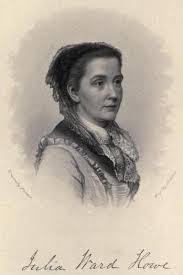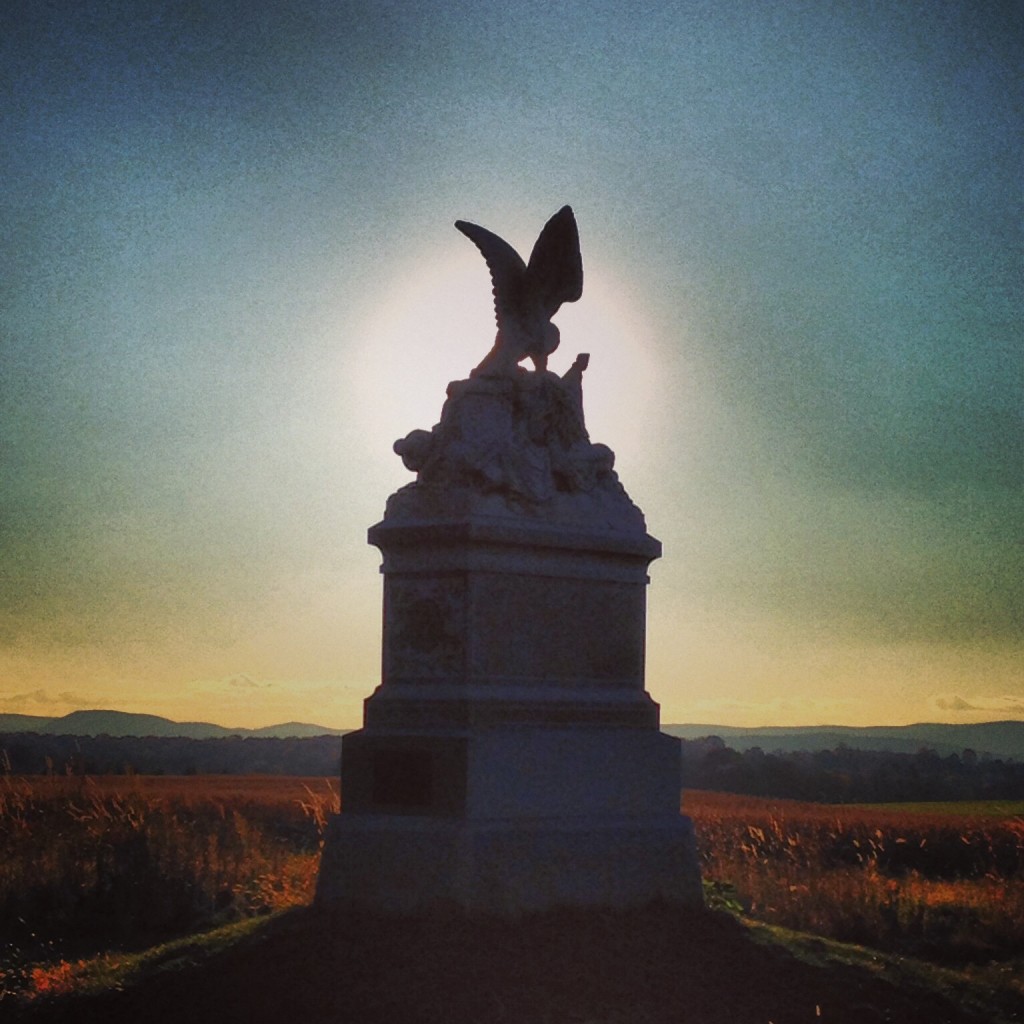Lyrics
Battle Hymn of the Republic
Mine eyes have seen the glory of the coming of the Lord;
He is trampling out the vintage where the grapes of wrath are stored.
He hath loosed the fateful lightning of His terrible swift sword;
His truth is marching on!
Glory! Glory! Hallelujah!
Glory! Glory! Hallelujah!
Glory! Glory! Hallelujah!
His truth is marching on.
He has sounded forth the trumpet that shall never call retreat;
He is sifting out the hearts of men before His judgment-seat;
Oh, be swift, my soul, to answer Him! be jubilant, my feet!
Our God is marching on!
Glory! Glory! Hallelujah!
Glory! Glory! Hallelujah!
Glory! Glory! Hallelujah!
His truth is marching on.
In the beauty of the lilies Christ was born across the sea,
With a glory in his bosom that transfigures you and me;
As he died to make men holy, let us die to make men free,
Our God is marching on!
Story
The Battle Hymn of the Republic
 After 150 years, two Civil War songs remain in the America’s consciousness: The Battle Hymn of the Republic and Dixie.
After 150 years, two Civil War songs remain in the America’s consciousness: The Battle Hymn of the Republic and Dixie.
In this adaptation, Andrew puts a blues twist on Julia Ward Howe’s stirring words written to the popular melody and rhythm of the old camp meeting hymn “Canaan’s Happy Shore.” Abolitionist Julia Ward Howe, while touring Union Army Camps near Washington, D.C. with her husband, heard a lyrical adaption of the old tune then popular with marching troops called “John Brown’s Body.”
The words of John Brown’s Body had a “flavor of coarseness and irreverence”, including the following examples:
John Brown’s body lies a-mouldering in the grave,
John Brown’s body lies a-mouldering in the grave,
But his soul goes marching on.
They will hang Jeff Davis to a tree!
They will hang Jeff Davis to a tree!
They will hang Jeff Davis to a tree!
As they march along!
Hearing these words during this visit to the Union camps, fellow Abolitionist Reverend James Freeman Clark challenged Julia Ward Howe to pen new lyrics to the familiar tune. She said that she often thought of doing just that.
The following morning, Mrs. Howe later described the flash of inspiration that would leave its mark on American history:
“I went to bed that night as usual, and slept, according to my wont, quite soundly. I awoke in the gray of the morning twilight; and as I lay waiting for the dawn, the long lines of the desired poem began to twine themselves in my mind. Having thought out all the stanzas, I said to myself, ‘I must get up and write these verses down, lest I fall asleep again and forget them.’ So, with a sudden effort, I sprang out of bed, and found in the dimness an old stump of a pen which I remembered to have used the day before. I scrawled the verses almost without looking at the paper.”
Howe suggested that writing the song may have been an act of divine inspiration, later asserting this creative truth: “I realize that it is not the thing we write that carries weight, but that which writes itself through us.’
The national hymn soon appeared in the Atlantic Monthly Magazine in 1862, as a battle song for the republic. Before long the entire nation became inspired by her text and united in singing the new words with the old tune, now known as The Battle Hymn of the Republic.
Connection to Gettysburg
As Julia Ward Howe and Reverend Clark finished their review of Union troops, a Sergeant John Ticknor of the Sixth Wisconsin broke out in a strong, clear and beautiful tenor voice several lines from “John Brown’s Body” as the 6th marched away. According to his commander, Rufus Dawes, the whole regiment joined the grand chorus “Glory, glory hallelujah, as we go marching on”—providing perhaps the inspiration that would lead to the composition of the hymn. The 6th Wisconsin, Dawes later wrote, “helped to swell the chorus that day.”
On July 1st, 1863, the then Captain John Ticknor was shot crossing the fence at the Chambersburg Pike during the 6th Wisconsin’s famous charge of the railroad cut in the opening moments of the Battle of Gettysburg. Rufus Dawes lamented the loss of Ticknor, who “had begun his service in the ranks, but his special talent for leadership had gained him a captaincy. He had a special reputation for a fine tenor voice that often lead the 6th in song.”
Perhaps in his dying moments, he whispered the words he helped inspire:
In the beauty of the lilies Christ was born across the sea,
With a glory in his bosom that transfigures you and me;
As he died to make men holy, let us die to make men free,
While God is marching on.
